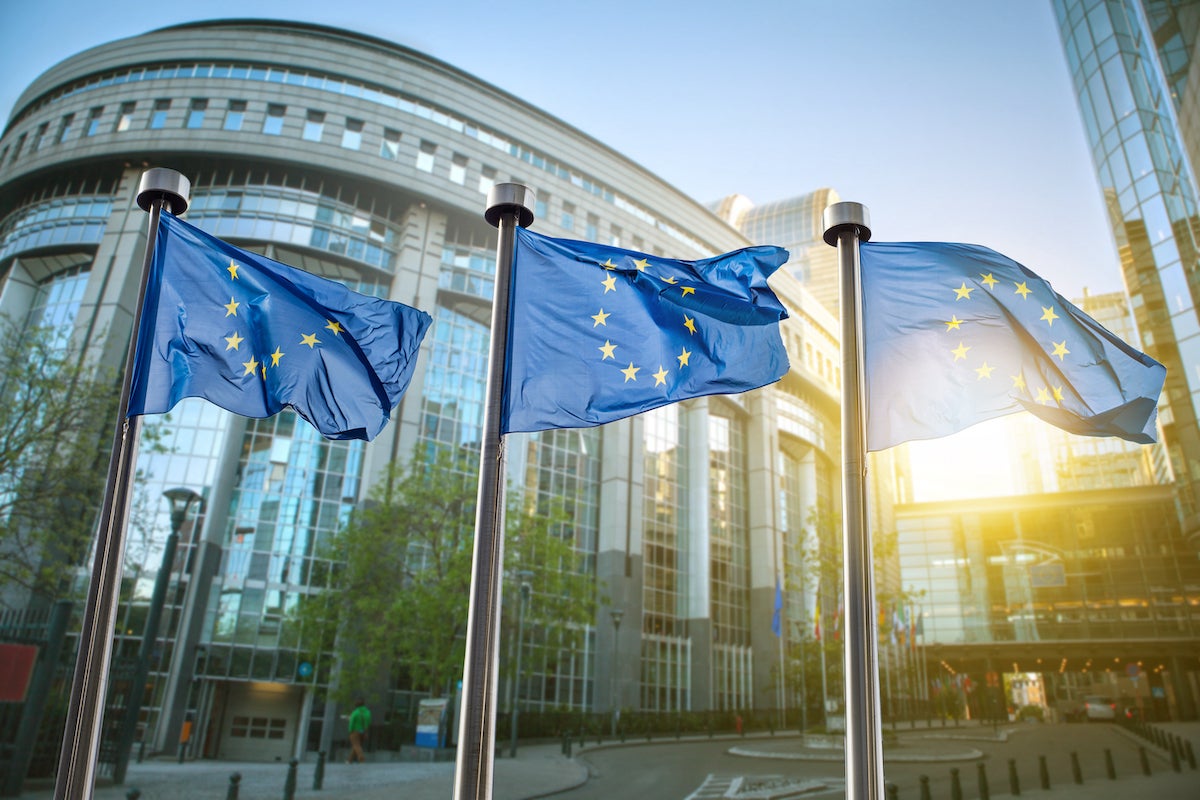The European Commission has published a list of so-called gatekeeper companies that will be regulated by its Digital Markets Act (DMA), simultaneously announcing it will open investigations into the arguments put forward by Microsoft and Apple that claim iMessage and Bing don’t meet the threshold for regulation.
The Commission said it had notified Alphabet, Amazon, Apple, ByteDance, Meta, Microsoft and Samsung of their gatekeeper status — companies with a market capitalization of at least €75 billion ($81 billion) or sales in Europe of over €7.5 billion, at least 45 million monthly users in the EU. Twenty-two core platforms operated by these companies also fall under the scope of the DMA.
These include:
- Four social networks: TikTok, Facebook, Instagram, LinkedIn
- Six “intermediation” services: Google Maps, Google Play, Google Shopping, Amazon Marketplace, iOS App Store, Meta Marketplace
- Three ads delivery systems (ADS): Google, Amazon and Meta
- Two browsers Chrome, Safari
- Three operating systems: Google Android, iOS, Windows PC OS
- Two Number Independent Interpersonal Communications Services (N-IICS) or messaging services: WhatsApp, Facebook Messenger
- One search engine: Google
- One video sharing platform: YouTube
Yesterday it was reported that Apple and Microsoft were arguing that neither iMessage nor Bing should be subject to regulatory requirements of the DMA as the platforms did not meet the threshold set out by the legislation. Both were left off the list published today.
“The Commission has opened four market investigations to further assess Microsoft's and Apple's submissions arguing that, despite meeting the thresholds, some of their core platform services do not qualify as gateways,” the Commission said in a statement, adding that the investigation should be completed within a maximum of five months.
An additional market investigation has been opened to further assess whether Apple's iPadOS should be designated as gatekeeper, even though is does not meet the thresholds.
The Commission said it had also concluded that despite Gmail, Outlook.com and Samsung Internet Browser meeting the thresholds under the DMA to qualify as gatekeeper services, “Alphabet, Microsoft and Samsung provided sufficiently justified arguments showing that these services do not qualify as gateways for the respective core platform services.”
What’s next for the gatekeepers?
Gatekeepers now have six months to comply with the full terms of the DMA, during which time the companies must submit a detailed compliance report in which they outline how they will fulfill each of the obligations laid out by the DMA.
If a gatekeeper does not comply with the DMA’s obligations, the Commission can impose fines of up to 10% of the company's total worldwide turnover, which can increase to 20% in case of repeated infringement.
Where the Commission deems systematic infringements have occurred, it has the power to adopt additional remedies such as obliging a gatekeeper to sell parts of a business or banning acquisitions of additional services related to the systemic non-compliance.
Even if Apple and Microsoft are ultimately successful in their challenges, there would not be an immediate floodgate of arguments from other gatekeepers, as the tech firms would have needed to object to their platforms being regulated before the list was published, said Zach Meyers, senior research fellow at the Centre for European Reform
“Other firms could — based on whatever reasoning Apple and Microsoft made, if they are successful — ask the Commission to reopen the decision to regulate their services later, but only if there has been a 'substantial change' or a mistake,” he said, adding that alternatively, the companies could wait until the Commission conducts another review, which happens at least once every threeyears.
The DMA was approved in July 2022 and is designed to rein in the power of large tech corporations, forcing them to change how they integrate digital services and handle customer data while also addressing issues including the right to uninstall software on devices, greater personal data access controls, enhanced advertising transparency, an end to vendors self-preferencing their own services, and a stop to certain restrictive app store requirements for developers.






